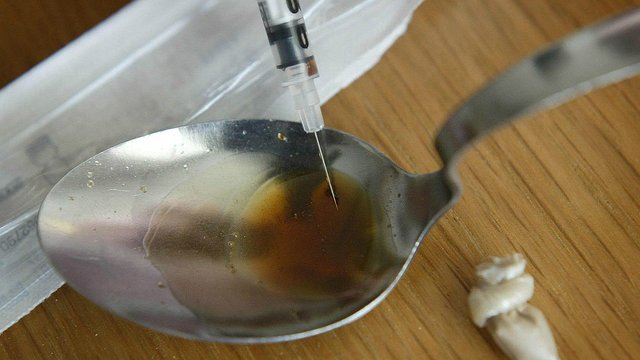On Air Now
The Capital Late Show with Sonny Jay 10pm - 1am
15 August 2017, 13:48

Drug deaths in Scotland rose by 23% to a record high last year.
Official statistics show 867 overdose deaths were recorded in 2016, up by 161 on 2015.
The figure is the largest ever recorded and more than double the 2006 total of 421.
The majority (68%) of drug-related deaths last year were men.
Almost a third (30%) of all those who died were in the Greater Glasgow and Clyde health board area, followed by Lothian (15%), Lanarkshire (13%) and Ayrshire and Arran (10%).
Almost three-quarters (72%) of drug-related deaths were in the over-35 age group.
Heroin and/or morphine was implicated in or potentially contributed to more deaths than in any previous year at 473 (55%).
Statisticians said Scotland's drug-death rate was higher than in all other EU countries and roughly two-and-a-half times that of the UK as a whole.
Dave Liddell, chief executive of the Scottish Drugs Forum, said the scale of the problem is a "national tragedy that requires a fundamental rethink of our approach".
He said: "Other countries have achieved a reduction in overdose deaths by ensuring that people are appropriately retained in high-quality treatment and we must aspire to do the same."
The Scottish Government said the statistics show an ageing group of drug users are more likely to be affected.
Public Health Minister Aileen Campbell said: "We are dealing with a very complex problem in Scotland - a legacy of drugs misuse stretching back decades.
"What we are seeing is an ageing group of people who are long-term drugs users. They have a pattern of addiction which is very difficult to break, and they have developed other chronic medical conditions as a result of this prolonged drugs use.
"Unfortunately, there is a general trend of increasing drug-related deaths across the UK and in many other parts of Europe.
"There are no easy solutions, but we recognise that more needs to be done."
She said a refresh of the Government's drugs strategy would provide "an opportunity to reinvigorate our approach, to respond to the new challenges emerging and to be more innovative in our response to the problems each individual is facing".
Scottish Liberal Democrat health spokesman Alex Cole-Hamilton MSP said the figures are "shocking".
He said: "The Scottish Government slashed funding to drug and alcohol partnerships by more than 20%. Valuable local facilities have shut their doors. It is even clearer now that this was completely the wrong decision. These services are best placed to intervene and help avoid lives from being lost."